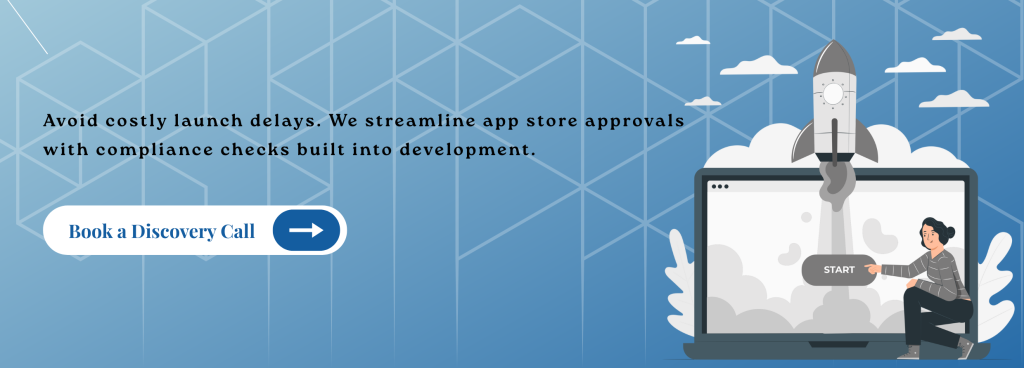
Mobile applications are no longer optional add-ons for businesses. Organizations are understanding the importance of having a robust and intuitive mobile app. Hence the demand for mobile app development services is increasing at an astonishing rate.
Yet, deployment remains one of the most underestimated stages of mobile app development. A flawless prototype in the lab can quickly stumble when faced with the realities of security, scalability, app store approvals, and user adoption. Deployment challenges do not only slow down launches; they can damage reputation, waste investment, and block growth. Also, while Generative AI, low-code solutions, and latest frameworks like Flutter, bring efficiency and speed, they also add new challenges.
To stay ahead of the curve, businesses and developers must be aware of these hurdles and address the biggest mobile app deployment challenges. Along the way, we will also highlight how CodingWorkX supports enterprises in navigating these obstacles with a mix of engineering expertise and deployment strategy.
Challenge 1: Ensuring Security and Compliance
Mobile applications store sensitive information, including personal identifiers, financial data, and health records. A single weakness can result in damage to both reputation and financial position. In 2026, regulators will increase the pressure with accelerated rules around frameworks like GDPR, HIPAA, or a host of other sector-specific compliance rules. Most businesses developing apps that conduct transactions, store health-related data, and verify identity cannot afford to have an exposure that results from a weak link in security.
Prevalent risks include insecure APIs, insecure encrypted data storage, and misconfigured cloud services. Many apps fail because security is treated as a post-launch patch rather than a design principle.
The solution:
- Embed security-by-design principles into the development cycle.
- Use strong encryption standards for data at rest and in transit.
- Conduct penetration testing before deployment.
- Integrate compliance checks into the CI/CD pipeline so that every update remains compliant.
At CodingWorkX, being a top mobile app development company, security reviews are not optional – they are built into every deployment cycle. By combining secure coding practices with compliance-first architecture, we help businesses launch apps that not only perform but also withstand regulatory scrutiny.
Challenge 2: Managing Scalability and Performance
Many applications work fine during pilot testing but fail when exposed to real-world traffic surges. A retail app that crashes on Black Friday or a fintech app that slows during peak trading hours damages user trust immediately. Scalability and performance issues are some of the most expensive deployment failures.
The solution:
- Adopt cloud-native deployment that allows automatic scaling based on traffic.
- Perform load testing to simulate stress before launch.
- Use microservices architecture for modular scaling.
- Implement performance monitoring tools to detect bottlenecks in real time.
For example, a retail brand expecting seasonal traffic spikes can configure load balancers and elastic servers to automatically expand capacity. At CodingWorkX, we design apps with scalability baked in, ensuring clients do not just deploy an app but deploy one that grows with demand.
Challenge 3: Handling Device and Platform Fragmentation
Unlike web applications, mobile apps must work across different operating systems, screen sizes, hardware capabilities, and OS versions. Android fragmentation alone covers thousands of device models. Add iOS updates, and businesses face a constantly shifting target.
Deployment failures often arise from apps that look great on one device but break on others. Poor optimization across platforms leads to inconsistent user experiences, negative reviews, and churn.
The solution:
- Leverage cross-platform frameworks such as Flutter or React Native to unify development.
- Design adaptive UIs that scale across screen sizes.
- Run continuous integration testing across real devices and emulators.
- Build compatibility testing into every update cycle.
At CodingWorkX, we maintain device testing labs and CI pipelines that catch fragmentation issues early. This ensures that deployment is not a gamble but a smooth rollout across the widest possible user base.
Challenge 4: Navigating App Store Approval
Getting your app discovered in a crowded market place is quite a challenge. Also, guidelines of App Store and Google play are strict, and cover everything from data security and user experience to design standards and monetization rules. Many apps face rejection during the approval process, delaying launch and frustrating stakeholders.
Reasons for rejection include:
- Non-compliance with privacy guidelines.
- Poor navigation or unclear functionality.
- Security vulnerabilities flagged during review.
The solution:
- Build compliance checklists aligned with the latest store rules.
- Conduct pre-submission audits that simulate store reviews.
- Invest in user experience polish to meet store standards.
- Stay updated on changing guidelines to prevent last-minute surprises.
At CodingWorkX, app store readiness is part of our deployment playbook. Our teams ensure every submission aligns with store rules, reducing costly rejections and ensuring smoother go-live timelines.
Challenge 5: Integrating with Existing Systems
Mobile applications rarely operate in isolation. They must connect to CRMs, ERPs, payment gateways, analytics dashboards, and legacy systems. Failed integrations result in broken user experiences – customers may place orders, but the data never reaches the backend, or payments fail midway.
The solution:
- Build with an API-first architecture that prioritizes integration.
- Use middleware to connect modern apps with legacy systems.
- Test integrations in staging environments before deployment.
- Ensure security protocols extend across connected systems.
At CodingWorkX, integration is treated as a core part of deployment, not an afterthought. We ensure apps plug seamlessly into the broader business ecosystem so that workflows remain unbroken.
Challenge 6: Driving User Adoption and Retention
A technically successful deployment does not guarantee business success. Many apps struggle with adoption. Users download once, explore briefly, and then abandon. Without a strategy for retention, even a flawless deployment can fail commercially.
The solution:
- Design onboarding flows that guide users smoothly.
- Deploy push notification strategies that engage without spamming.
- Use analytics to track drop-off points and iterate on UX.
- Build feedback loops so updates reflect real user needs.
Apps that succeed focus as much on retention as on initial downloads. At CodingWorkX, we embed engagement features into app design so that adoption is not left to chance.
Challenge 7: Post-Deployment Maintenance and Updates
Deployment is just the start. Operating systems update frequently and vulnerabilities emerge after you have deployed. Without continued monitoring and updates, even the best apps will degrade quickly, making your users frustrated and attract reviews.
The solution:
- Establish DevOps pipelines for continuous delivery.
- Automate monitoring tools to flag crashes or unusual behavior.
- Schedule regular updates aligned with OS changes.
- Maintain a dedicated support framework for rapid fixes.
At CodingWorkX, post-deployment support is part of the package. We do not just hand over an app; we ensure it evolves and stays reliable long after launch.
Preparing for a Smooth Deployment
Successful deployment requires alignment between IT, security, and business goals. A smooth rollout depends on planning ahead. Businesses must:
- Assess readiness through audits and pilot launches.
- Prioritize security and scalability from the first design phase.
- Align app goals with measurable business outcomes.
CodingWorkX provides holistic deployment support. From security engineering to app store compliance, from integration to post-launch monitoring, we deliver apps that are ready for both launch day and long-term growth.

Conclusion
Getting a competitive edge and staying ahead in mobile app development requires a proactive approach, willingness to adapt, and a commitment to delivering top-notch user experience. However, with the right tools and strategies, businesses can navigate the challenges of mobile app development and get long-term success.
The team at CodingWorkX helps you overcome the challenges in mobile app development. Our developers are dedicated to fine-tuning your mobile app development process to ensure your application meets the highest quality standards. We can help you build custom solutions that meet your specific needs and boost your business growth. Reach out to us today and ensure smooth app development for tomorrow.
Frequently Asked Questions
What are the mobile app development challenges businesses face?
The biggest challenges in mobile app development services include platform and device fragmentation, UI and UX design, performance optimization, testing across multiple devices, security concerns and post-launch support.
How CodingWorkX helps businesses overcome mobile development challenges?
Being a trusted mobile app development company, we help you overcome the challenges by:
- Planning features and budget
- Testing on multiple platforms and devices
- Giving priority to UX and security from day one
- Updating and fixing bugs post launch
How does CodingWorkX ensure smooth and successful mobile app deployment?
We at CodingWorkX follow a structured approach that covers readiness audits, scalability tests, security reviews and compliance checks. With our agile methodology, we ensure your app is secure, scalable and optimized.
How can businesses ensure a secure mobile app deployment?
Using strong encryption, secure APIs, and conducting penetration testing, we integrate security at every stage. We design cloud-native, microservices-based architectures that automatically scale as user demand grows to ensure seamless performance at all times.
